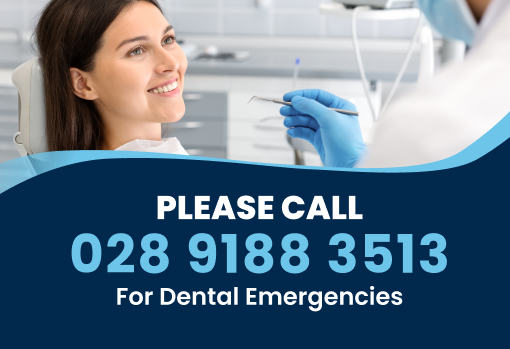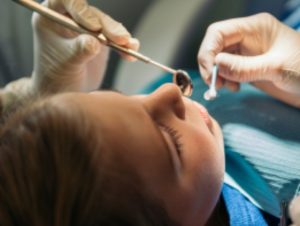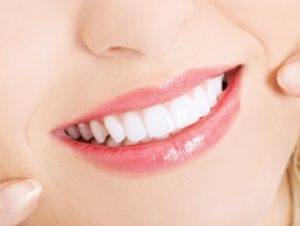Christmas should be a time of joy, relaxation and spending quality time with those we love. Exchanging presents and sharing delicious food and drink. However, when a dental emergency strikes, this can seriously disrupt the celebrations. From facial swelling to significant dental pain; tooth abscesses to bleeding gums, it is important that you know who to approach and how to help yourself during a dental emergency at Christmas. Here are some potential dental emergency scenarios and tips to help you cope at home – and know when to call for professional help.
- Seeking professional help in a dental emergency
It is a good idea to make a note of your dentist’s emergency dental helpline number in case you need it urgently over Christmas. Check that the line is working during the holidays and on what days. You may also be able to access dental emergency help and advice via the dentist’s website. Alternatively, dial 111 to speak to an NHS adviser who can direct you to the most appropriate emergency dentist, hospital facility or even A&E, depending on the emergency and its urgency and severity, This service will be operative throughout the festive season, including Christmas Day, Boxing Day and New Year’s Day.
- Managing tooth pain
Serious tooth or gum pain is often a sign of a dental emergency that needs attention. There are several things that you can do at home to help alleviate the pain while you arrange to see a professional. Take painkillers such as ibuprofen or paracetamol and avoid eating or drinking anything really hot or cold. Don’t eat anything hard either, such as candy canes, nuts or pork crackling. This could exacerbate the pain and make any cracks or damage worse. You can also hold a warm compress against your cheek or jaw to help reduce pain, or regularly swill your mouth out with warm water and salt.
- Lost filing or broken teeth
Christmas involves a lot of eating and enjoying ‘chewy’ treats such as nuts, toffee or nougat. If a crown falls out, or you crack or lose a tooth, seek emergency help straight away. If you can, keep the lost tooth or crown safe in some milk until it can be reattached. Do not try to clean the root, as this can compromise a dentist’s ability to reattach it in the mouth. Swill out your mouth with warm water or mouthwash to get rid of any debris in the gap left behind. If you must eat while you await dental emergency care, stick to soft foods that won’t cause any further damage. Save the crispy roast potatoes and turkey for when you are back home again and all fixed up.
- Post extraction or surgical issues
If you have had a procedure done close to Christmas, it is vital that you follow all after-care instructions to avoid causing a dental emergency. This includes taking any antibiotic as directed, even if this prevents you from drinking alcohol over the Christmas holiday for a while. Antibiotics are most effective for long-term healing if you take the whole prescribed course, rather than stopping when you start to feel better. Swill the mouth out with warm, salty water to prevent infection. Do not smoke while you are recovering as this can contribute to your developing dry socket – an extremely painful side effect of dental emergency surgery.
- Tooth abscesses and facial swelling
Abscesses are normally considered to be a dental emergency that requires immediate attention. They can be extremely painful and even life-threatening if left untreated. They will not disappear on their own as they are brought about by infection inside the tooth that needs to be medically fixed. However, you can help alleviate their symptoms to some extent at home while you arrange your dental emergency appointment at Christmas. Do not try to poke around or investigate your tooth at home. Take painkillers and apply a cold compress to reduce any facial swelling that is present. If you feel dizzy or faint from the pain, lay down in a darkened room until you feel better. Sometimes, a dab of clove oil can help reduce discomfort for a short time while you get yourself to the dentist or seek treatment.





